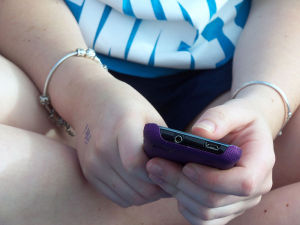J. Bradley Smith of Arnold & Smith, PLLC answers the question “Should I ever plead guilty to a charge?”
The criminal law, it is said, evolves as technology does, and criminal codes and doctrines grow to fit the new circumstances and technologies that criminals, would-be criminals and unknowing criminals commit. It should come as no surprise, then, that longstanding criminal doctrines are being applied to actions taken on devices that have become ubiquitous in modern American life: phones.
 Except, devices that people carry around these days have come a long way from the banana-sized box lawyer Johnny Cochran made famous carrying around in the early-to-mid 1990s. It is said that the law cannot keep pace with society, evolving about twenty years slower than the culture, but even the United States Supreme Court has caught on to the uniqueness of the modern “cell phone,” calling the devices “minicomputers that also happen to have the capacity to be used as a telephone” in a landmark case last year called Riley v. California.
Except, devices that people carry around these days have come a long way from the banana-sized box lawyer Johnny Cochran made famous carrying around in the early-to-mid 1990s. It is said that the law cannot keep pace with society, evolving about twenty years slower than the culture, but even the United States Supreme Court has caught on to the uniqueness of the modern “cell phone,” calling the devices “minicomputers that also happen to have the capacity to be used as a telephone” in a landmark case last year called Riley v. California.
In that case, the high court unanimously rejected the United States government’s position that when a person is arrested, a law-enforcement officer is entitled to seize everything off the arrestee’s phone. The court ruled officers need a warrant to do that.
Phones—or whatever one calls them nowadays—are still bringing individuals into criminal jeopardy, however, as a recent case from Massachusetts illustrates.
 Charlotte Criminal Lawyer Blog
Charlotte Criminal Lawyer Blog

